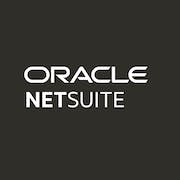Looking for the best order management software? Check out our comprehensive buyers guide for expert insights and top picks in 2024. Streamline your operations and boost sales today.
Are you tired of the tedious manual order processing tasks that eat up your time and drain your resources? If you're looking for a smarter way to manage your orders, you need an order management software solution that can streamline your entire eCommerce process, from start to finish. By centralizing your order data, and automating your day-to-day tasks, you can save time, reduce errors, and free up your resources to focus on growing and scaling your business. In this buyer's guide, we will highlight the key features and benefits of this tool, and help you choose the right one to meet your unique business needs.
What is order management software?
This is a computer program or platform that helps companies manage the entire lifecycle of their orders. It enables businesses to streamline their order processing, from initial order placement to final delivery, by automating redundant tasks and centralizing order data. Some notable features of this solution include order processing, inventory management, sales management, shipping and delivery, and customer management.
Common use cases of this solution include:
-
Improved order accuracy and faster shipping times
-
Real-time inventory management that aids in decision-making and forecasting
-
Complete visibility of the entire order lifecycle, from placement to completion
-
Efficient and automated order processing from multiple channels or marketplaces
-
Customer relationship management (CRM) capability and advanced analytics dashboards. 70% of all supply chain executives believe that supply chain optimizations (like implementing OMS) will be the drivers of customer relations improvements.
This type of software is used by many types of businesses, including e-commerce websites, wholesalers, retailers, and manufacturers. It is valuable for companies that have large order volumes, deal with complex orders, or require extensive and varied shipping options. Additionally, it is ideal for companies that need streamlined coordination among multiple departments, such as sales, customer support, and logistics.
What benefits does an order management package offer?
Are you running a business and struggling to manage orders effectively? An order management system (OMS) can help you streamline the entire process of managing orders efficiently. It is an essential tool for businesses to automate and optimize the order fulfillment process from start to finish. It provides many benefits and advantages that can help businesses to increase their efficiency and profitability.
Here are some of its main benefits:
-
Centralized order management: It allows businesses to manage their orders from a single, centralized location. No more juggling spreadsheets, emails, and phone calls to keep track of orders.
-
Automates order processing: An OMS tool automates order processing, reducing the need for manual data entry and minimizing errors. This software can handle a large volume of orders, processing them quickly and accurately.
-
Real-time inventory management: It provides real-time inventory tracking, allowing businesses to optimize their inventory levels and avoid stock-outs.
-
Enhanced customer experience: With automated updates on order and shipment status, customers can stay informed about their orders. This feature enhances the customer experience, leading to increased customer satisfaction and loyalty.
-
Better order accuracy: OMS reduces the risk of errors such as double orders or incorrect shipments. This accuracy helps to minimize returns and complaints, ultimately saving time and money.
-
Increased efficiency: With automation and streamlined processes, businesses can process orders more efficiently, reducing costs and increasing profitability.
10 key features of order management software
This powerful tool streamlines and automates the process of managing orders and inventory for companies of all sizes. It allows companies to track orders from any channel, process payments, monitor inventory, and more. Here are 10 of its common features that you should know:
-
Order fulfillment - It ensures smooth order processing and delivery by integrating with your eCommerce platform, point-of-sale systems, and other sales channels.
-
Inventory management - It helps companies maintain optimal stock levels by tracking inventory in real-time, calculating safety stock levels, and sending alerts when stock levels are low.
-
Integration with shipping carriers - It automates shipping label creation and sends tracking numbers to customers. It also supports multiple shipping carriers for flexibility.
-
Returns management - The OMS tool streamlines the returns process by providing customers with return labels and tracking returned items, refunding payments, and updating inventory.
-
Customer management - OMS allows businesses to manage customer information and order history, providing insights into customer behavior, preferences, and purchasing patterns.
-
Multi-channel selling - The OMS platform helps businesses expand their sales channels by supporting multiple platforms such as Amazon, eBay, and other third-party marketplaces.
-
Payment processing - It integrates with payment gateways, automating the payment process and reducing errors.
-
Analytics and reporting - The solution provides detailed reports on sales, inventory, and order status, helping companies make informed business decisions.
-
Customization - OMS can be customized to meet the specific needs of each business, including custom workflows and integrations with existing systems.
-
Scalability - It grows with your business, supporting increased order volume, product offerings, and sales channels.
This a must-have tool in today's fast-paced business environment. It increases efficiency, reduces errors, and allows businesses to focus on growth and customer satisfaction. By embracing these 10 features, businesses can take advantage of everything OMS has to offer.
Considerations of order management software
In today's fast-paced business world, having an efficient order management system is critical for ensuring customer satisfaction, streamlining internal processes, and ultimately driving revenue growth. However, choosing the right one can be a daunting task, as the market is flooded with many competing solutions.
So, what factors should businesses consider when purchasing an order management app?
Scalability
As your business grows, your order management system should be able to grow with you. Ensure that the application you select can accommodate an increasing volume of orders and customers without compromising on performance.
Integration
Your system should integrate seamlessly with other technologies such as your eCommerce platform, accounting software, and customer relationship management (CRM) tools. This ensures smooth and efficient operations while minimizing errors and delays.
Customization
Every business is unique, so ensure that the one you choose has the flexibility to be customized to meet your specific needs. This includes features such as custom fields, workflow automation, and reporting functionalities.
Ease of use
A complex and unwieldy order management system can lead to inefficiencies and costly errors. Choose a platform that is intuitive and easy to navigate, with a user-friendly interface that requires minimal training.
Security
The security of your customers' data and transactions is of utmost importance. Ensure that the solution you choose is compliant with industry standards and regulations such as PCI DSS and GDPR.
Customer support
A reliable and responsive customer support team is crucial in ensuring the smooth running of your order management application. Choose vendors that offer 24/7 support, as well as resources such as online training, user forums, and knowledge bases.
By carefully considering these factors, businesses can ensure that they choose the right order management software that can help them achieve their goals while delivering a seamless and satisfying customer experience.
Industry trends for order management software
This technology has become an essential component of a successful e-commerce operation. As businesses seek to streamline their operations and provide customers with better experiences, OMS service providers are continuously improving their offerings to meet the evolving needs of their clients. In 2024 and beyond, several trends are expected to shape the OMS market.
Firstly, there is a growing demand for cloud-based OMS. Cloud-based systems offer several benefits such as reduced upfront costs, easy scalability, and increased flexibility. Providers such as Brightpearl and TradeGecko are leading the charge in this area.
Secondly, there is a shift towards AI-powered OMS which uses machine learning algorithms to automate tasks such as order routing and fraud detection. Providers such as ShipBob and ShipStation are spearheading this development.
Thirdly, there is a growing need for multi-channel fulfillment capabilities. Customers now expect a seamless experience across multiple sales channels such as e-commerce platforms, social media, and marketplaces. Providers such as ChannelApe and Skubana are stepping up to provide integrations with these channels.
Lastly, there is a greater emphasis on real-time analytics and reporting. Businesses require accurate and up-to-date data to make informed decisions. Providers such as Orderhive and Stitch Labs offer powerful analytics tools to help businesses stay on top of their operations. As the e-commerce landscape continues to evolve, businesses need to embrace these trends to stay competitive and provide superior customer experiences.
Conclusion
In conclusion, an OMS can significantly enhance the order management process, and thus, it is an essential tool for modern businesses looking to streamline order processing and improve customer satisfaction. By automating and centralizing the management of orders, businesses can increase efficiency, accuracy, and overall profitability. Studies have also reflected that 66% of all organizations believe that integrated analytics tools, as those found in OMS systems, are of critical importance for long-term business growth.









